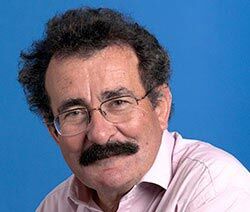University News Last updated 07 October 2014

Advances in genetic engineering make it vital to recognise how shocking historical stories of humanity’s “dark side” – including forced sterilizations and eugenics– could happen again, Lord Winston said this week.
Speaking to a joint Birmingham City University and Birmingham Women’s Hospital seminar, Lord Winston warned of the need for ethical considerations to keep pace with scientific breakthroughs.
Pointing to a US Supreme Court ruling, Buck versus Bell in 1927, where Carry Buck protested the state’s decision to forcibly sterilize her at the age of 18, Lord Winston said the decision was used as a legal justification for what happened in Nazi Germany, and offered lessons for today’s policymakers.
“We might be shocked by that case but I don’t want you to think for a moment that we can’t be in that position again. We are living on a planet that is extremely stressed, riven by conflict over land, water, oil and natural resources, as well as differences of ethnicity, religion and opinion. I think we need to think hard about how we deal with that aspect of our dark side which we have seen so clearly in the past.”
He went on to explain his work at the Hammersmith Hospital, Imperial College, on pioneering a method for making transgenic mice using manipulation of sperm. Early results suggest an 80% success rate at least in getting gene expression in the offspring for a minimum of the next three generations.
He said: “If we have such a successful method of transgenesis, and we are able to do it with a pig, which we can, then why not do it with another large animal, a human?”
Considering the implications further, however, Lord Winston added: “The idea of changing human strengths, intelligence, beauty – if we work to create super humans, where would we be – if there are super humans what is the value of humans? It is not an issue for us but our children will be faced with these sorts of realities, so it is not just a construct.”
Lord Winston, last month awarded an Honorary Doctorate by Birmingham City University, also addressed the use of frozen eggs in fertility treatment. He told the audience that less that 8% of patients treated with their own frozen/thawed eggs have ended with a live birth. Speaking later he said the technique was “grossly oversold by commercial interests with very little practical chance of a baby in most instances”.
Lord Winston said the regulator, the Human Fertilisation and Embryology Authority, was insufficiently tough on such providers.
The packed event reflected the long-established partnership between the Women’s Hospital and Birmingham City University. Lord Winston met separately with senior representatives of both organisations, including the University’s Vice Chancellor Cliff Allan and Chair of Birmingham Women’s Hospital Elisabeth Buggins. Medical Director Peter Thompson introduced Lord Winston’s presentation.
The University contingent also included Ian Blair, Executive Dean, Faculty of Health, Education and Life Sciences, and Carol Doyle, Head of School of Nursing, Midwifery and Social Work.